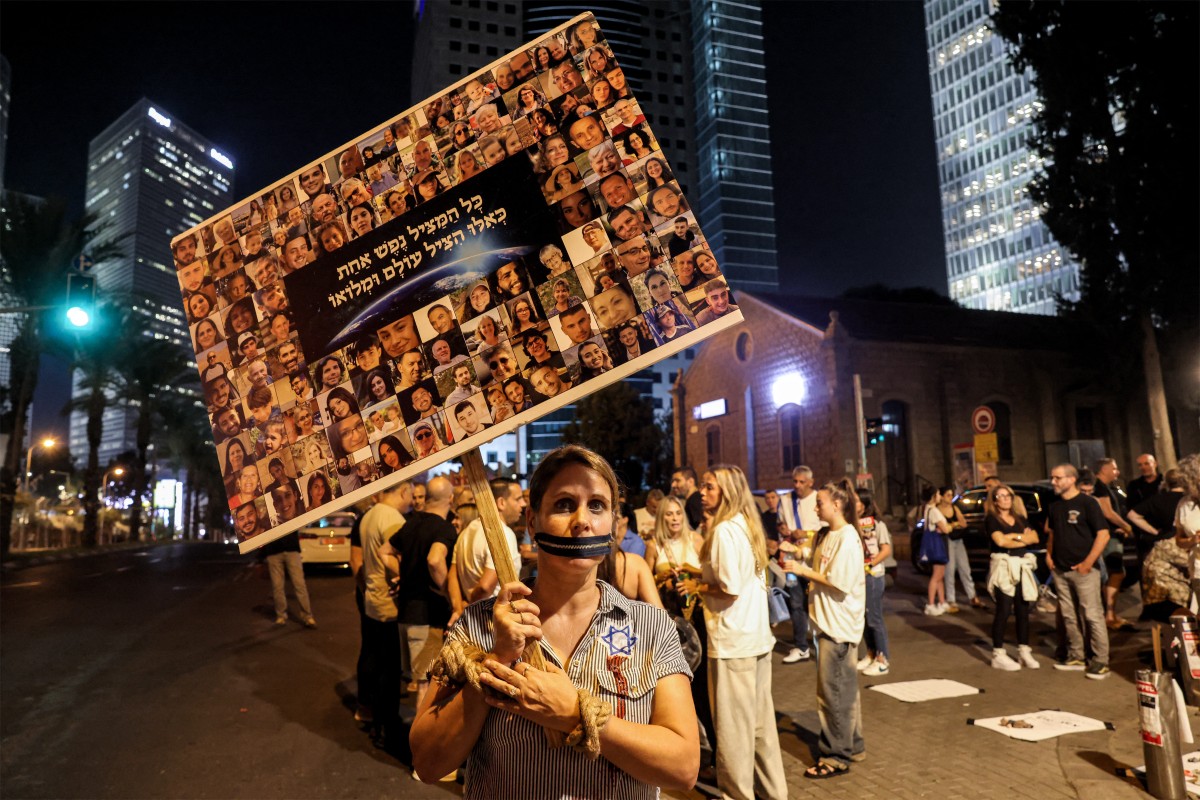Tel Aviv, Israel – Yocheved Lifshitz “went through hell” when abducted by Hamas, the 85-year-old Israeli said Tuesday, recounting her experience before being released from Gaza and criticizing her government for failing to prevent the October 7 attack.
The softly-spoken but determined Lifshitz sat in a wheelchair at a Tel Aviv hospital as she told reporters how she had been thrown on a motorbike and beaten by Palestinian gunmen who stormed her kibbutz community near the Gaza border.
They took her into the Gaza Strip, where Lifshitz said she had to walk through an underground “spider web” of tunnels.
At the location she had been kept with alongside others, she said captives received medical attention and were given the same bread, cream cheese and cucumber meals as their “friendly” guards.
With her and 79-year-old Nurit Cooper released on Monday night, Hamas has now freed a total of four of the hostages seized on October 7, estimated at more than 220.
An American mother and daughter left Gaza on Friday.
Lifshitz, whose husband remains a hostage in Gaza, was pictured shaking hands with one guard when she was freed.
Israeli officials count 1,400 deaths, mostly civilian, in the cross-border attack, the worst the country has ever suffered.
Israel has since launched a blitz of air raids on Gaza, which the Hamas government says has left 5,791 dead, including 2,360 children and hundreds of women.
Hamas also says that more than 20 hostages have been killed in Israeli raids.
Lifshitz, a resident of the Nir Oz kibbutz, said the Israeli government and army should have seen the attacks coming.
Kibbutz rampage
Hundreds of inhabitants of the kibbutz communities surrounding Gaza, which bore the brunt of the attacks, were killed. Nir Oz residents say more than 100 died there.
“I went through hell,” Lifshitz said in comments translated by her daughter at the entrance to the hospital where she was being treated.
“They went on a rampage in our kibbutz, kidnapped me, lay me over a motorcycle… and sped off with me through the ploughed fields.
“The guys beat me on the way. They didn’t break my ribs but hurt me there very much.”
In Gaza, Lifshitz said she was taken into a network of Hamas tunnels.
“We went underground and walked for kilometers (miles) in wet tunnels, for two or three hours in a spider web of tunnels,” she recounted.
Lifshitz said she had been left in a hall with about 25 other hostages and then taken to a separate room with four other people from Nir Oz, where she was placed on a mattress.
“They treated us well,” she told reporters, saying a doctor visited the hostages every two to three days and provided medicine.
“They treated us gently, and provided all our needs,” she said, when asked by a journalist why she shook hands with a masked Hamas militant as she was being released.
The toilets were cleaned every day, Lifshitz said, adding Hamas guards feared an outbreak of disease.
She described her captors as “very friendly” and “very courteous”.
Fence failure
“They seemed ready for this, they prepared for a long time, they had everything that men and women needed, including shampoo,” she noted.
“We ate the same food they did — pitas with cream cheese, melted cheese, cucumbers. That was a meal for an entire day.”
Lifshitz added to the pressure on the Israeli government over security lapses that some critics say aggravated the surprise October 7 raids.
She said incendiary devices launched by Hamas into kibbutz fields three weeks prior should have been a warning.
“They showed us what they were capable of, sent fire balloons to burn our fields, but the IDF (army) didn’t take it seriously.”
Lifshitz said the Israeli border fence of concrete and steel, equipped with hundreds of cameras and sensors, had not helped.
“They blew up the fence.”
The Israeli army and intelligence chiefs have acknowledged lapses in their work.
The hospital said that Lifshitz was in good health.
Lifshitz described the 16 days in captivity as “very unpleasant and difficult. And the memories too — I keep seeing the images of what happened”.

